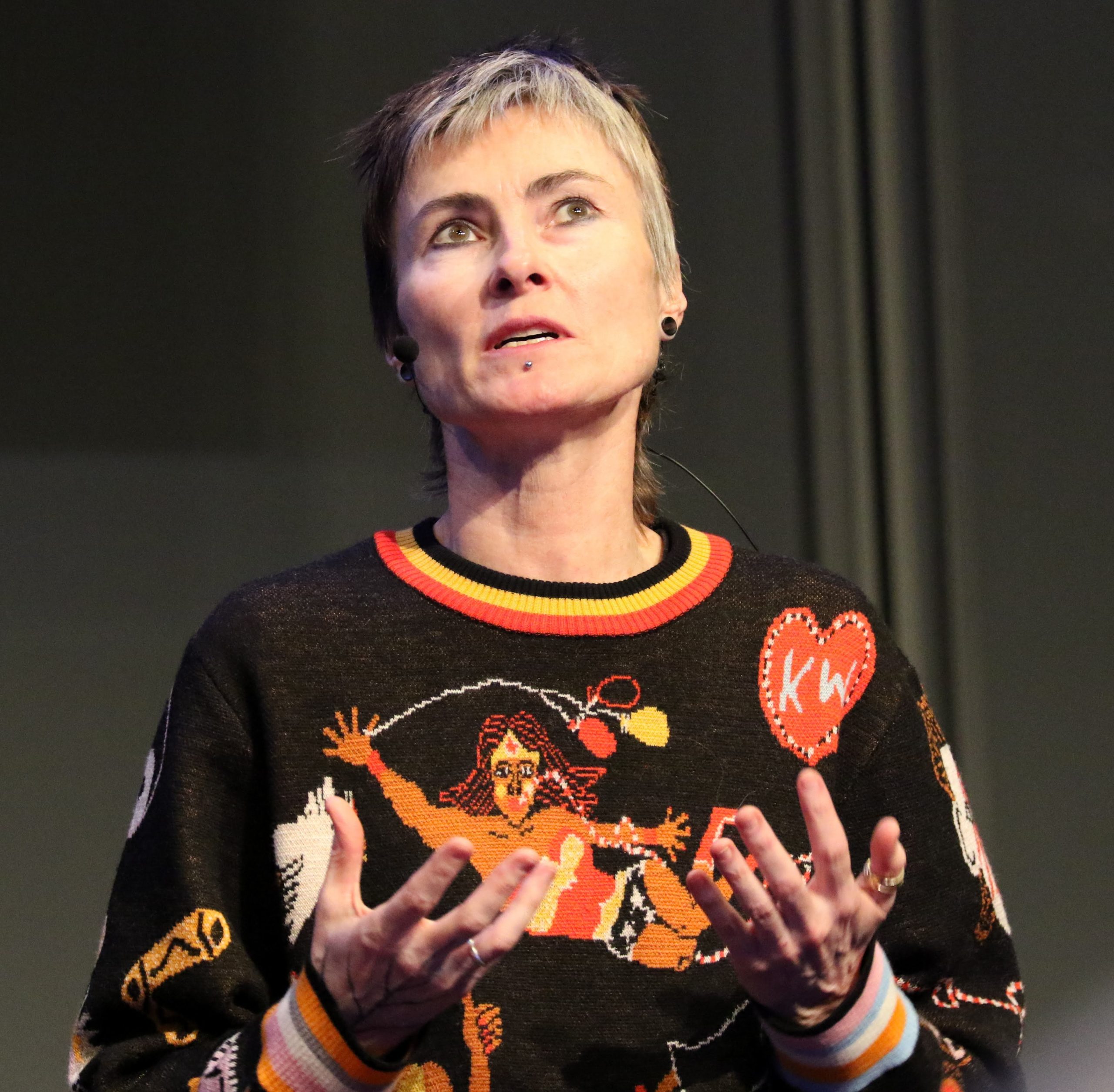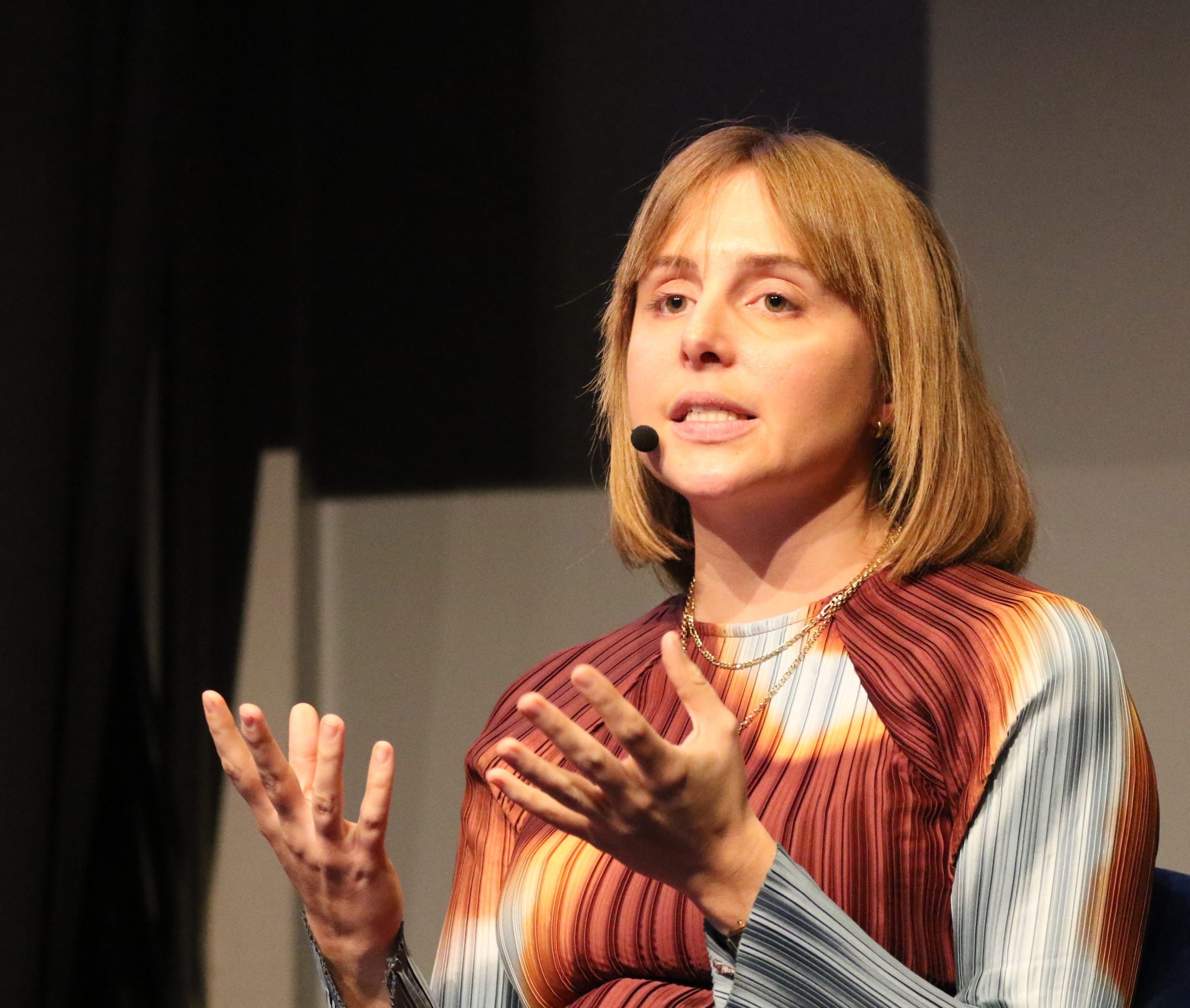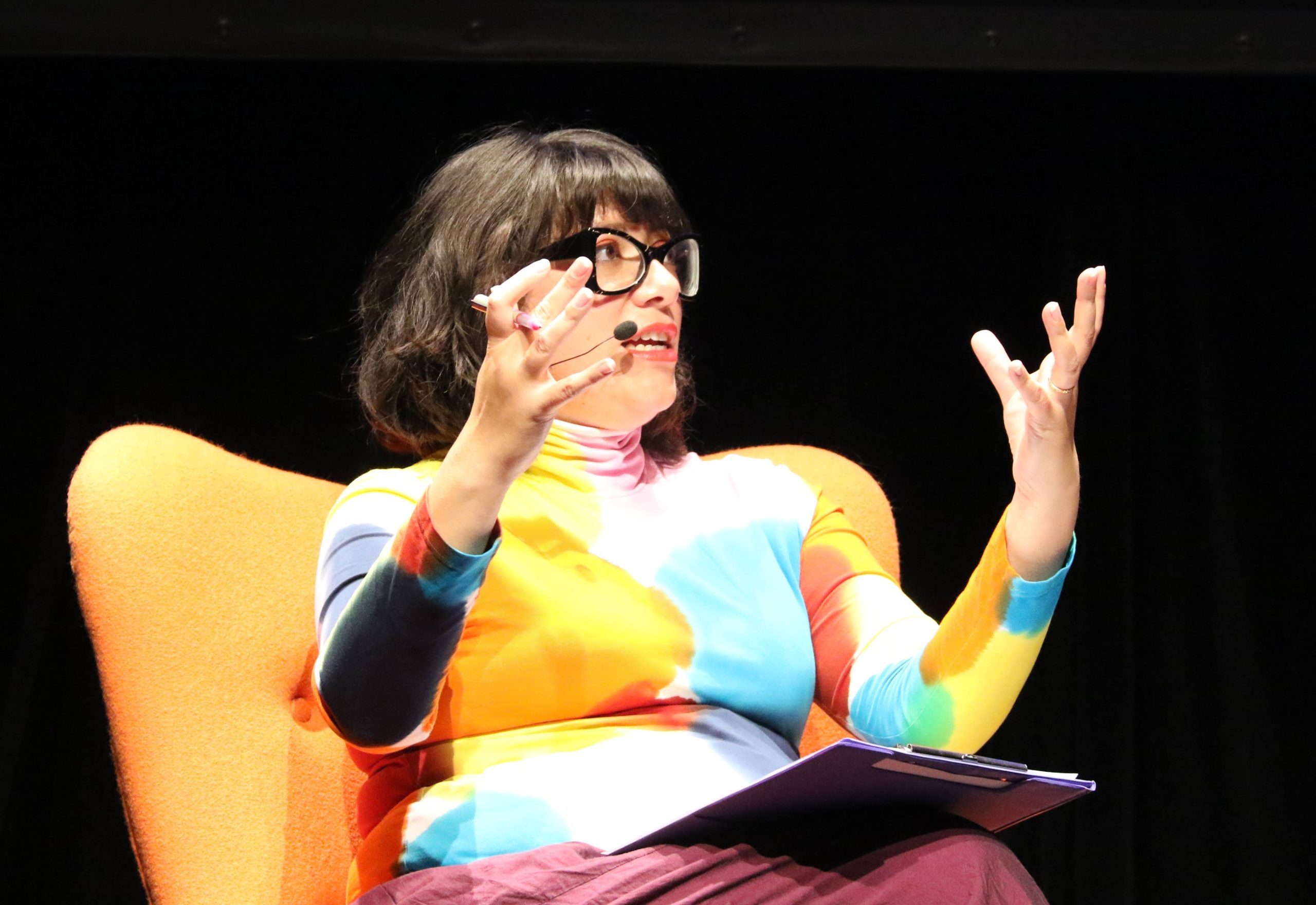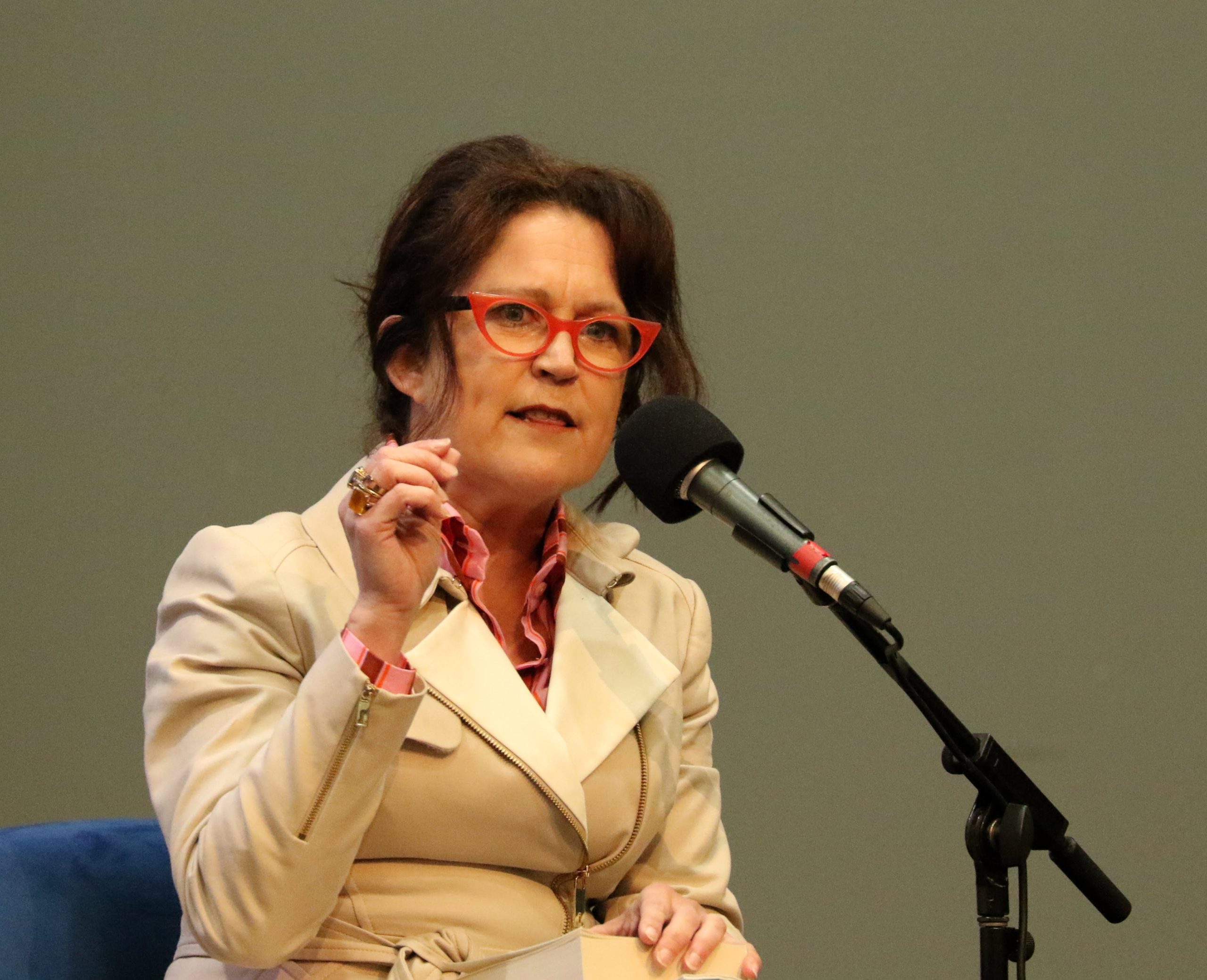The South Sydney Herald had a great time at the Sydney Writers’ Festival – and these photos from our photographer, Stephen Webb, show a few of the highlights.
The festival was held at Carriageworks and other venues from May 22 – 28 with more than 200 events which addressed the theme “Stories for the Future”.

Robbie Arnott, Fiona McFarlane, James McKenzie Watson and Susan Wyndham on “Life in the Landscape”.

Arnott’s novel, Limberlost, which won The Age Fiction Book of the Year this year, draws on the landscape and stories told to Arnott by his grandfather Bruce who grew up on an orchard in the Tamar Valley north of Launceston in the’30s and ’40s. Arnott said these stories of hunting rabbits, his brothers at war, and the surrounding trees and watery horizons “felt unknowable, almost mythical. Like tales from another world”.

Fiona McFarlane’s novel, The Sun Walks Down, is set in the fictional colonial South Australian town of Fairly and its outback surrounds where six-year-old Denny Wallace has gone missing. It probes the fear the white settlers and visitors have of this landscape which proves inscrutable to them.

James McKenzie Watson’s novel Denizen is set on a remote property in western NSW, where nine-year-old Parker fears that something is wrong with his brain – and his attempts to control it run amok. Years later, when Parker returns to the bushland he grew up in to camp with friends, he must address his childhood actions. McKenzie Watson said his gothic thriller was sparked by a childhood spent “on the brink of self-destruction” in regional NSW. Moving to Sydney, he said, had helped him gain the mental health support he needed to turn his life around.


Anne Casey-Hardy, Fiona Kelly McGregor and Sophie Cunningham “In Praise of Difficult Women”. Casey-Hardy (Cautionary Tales for Excitable Girls) said she was interested in being difficult, and “I take difficult to mean non-compliant”. Kelly McGregor (Iris) asked what a criminal was in the time of the White Australia Policy [in place for seven decades after it was established in 1901] when the law was there “to police people’s disadvantage”.

Shirley Le (Funny Ethnics), Kate Scott (Compulsion), Diana Reid (Love & Virtue, Seeing Other People) and Melanie Kembrey reflected on “Coming of Age”.



Jenny Odell (How to Do Nothing and Saving Time) and Jess Scully (Glimpes of Utopia) explored “Doing Nothing and Saving Time ”. Odell explained how we got to the point where time became money, and offered some examples of how a more humane, more hopeful way of living time-wise could be possible.


“Soft you. A word or two before you go. I have done the state some service, and they know ’t. No more of that. I pray you in your letters, when you shall these unlucky deeds relate,
speak of me as I am. Nothing extenuate …” (from Shakespeare’s Othello)


Annabel Crabb and Mark Mordue in “Remembering Robert Adamson and Frank Moorhouse”, quoted Othello, paid tribute to the two departed Australian literary titans fondly and read some fabulous passages from their superb work.
Adamson, who was known as the “poet of the Hawkesbury River” (due to the area north-west of Sydney that provided the inspiration and life force of his work) died on December 16, 2022, aged 79. He had published 16 books of poems and an autobiography, Inside Out. His most recent book of poetry is Reaching Light: Selected Poems.
Frank Moorhouse, celebrated Australian author and essayist, who was best known for the Edith trilogy, died on June 26, 2022, aged 83. The author of 18 books, in addition to screenplays and essays, Moorhouse explored the Australian identity through the career of Edith Campbell Berry, a young woman who works as a diplomat in Europe, then Canberra, in three novels – Grand Days, Dark Palace and Cold Light – published between 1993 and 2011.





